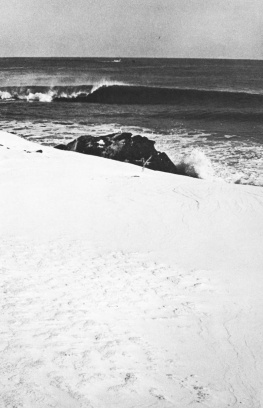In My Fathers House
In my fathers house, my father used to begin, wreathed in an enormous smile. As he grew older, after my mothers death, his memories of this rather somber house opposite the church of St. Michel in Ghent, took on a rich patina. Sitting opposite him in his house in Cambridge, Massachusetts, for our ritualistic Sunday dinner, I savored the short pause while some shadowy glory took on substance in his mind. I could hear the sound of herbs being chopped for the soup in that faraway kitchen, for in my grandfathers house this was the sure sign that dinner was about to be served. I could see the long table set for a dinner of twelve, the hard rolls wrapped in damask turbans at each place, the rows of wineglasses, including fltes for champagne at dessert. (Of this glittering army, one survived the 1418 war, a green glass on a crystal stem). My father and I poured ourselves another glass of American Pinot, but our palates were far away, soothed by the glowing sequence of Chablis, Burgundies, Sauternes and Champagnes poured by my grandfather with proper solemnity, and honored, no doubt, with a long and flowery toast by Oncle Adolphe, the literary member of the family, who taught French literature in a Lyce in Brussels, and was convinced that anything written since Chateaubriand had better be passed over in silence. In my fathers house, my father used to remind me, at formal dinners we allowed two bottles per male guest and one per female guest.
Certain moments, certain foods introduced the magical phrasemeat loaf was one. It raised without fail the ghost of that ineffable pain de veau which haunted my fathers American cook as an old mistress may haunt a wife. However much care she had put into the seasoning, however delicately browned and firm the meat loaf might be, its appearance on the table was always followed by a nostalgic reference to my fathers house and to that soupon of sagewas it sage?that made all the difference. What could the present do against that savory past?
The frame of these memories was as bourgeois as a Balzac novel, from the yearly calls of the wine merchants (Germans who dealt in French wines, which the customer bought by the barrel and bottled himself), those solemn and prolonged negotiations, to the rolls of fine linen stored in the attic, to the enormous dinnersfourteen courses lasting late into the night. But within the frame, life was rich and eccentric. This was perhaps partly due to circumstances, to the fact that the house was inhabited only by an old man (was my grandfather ever young?) and his only son, George Sarton. Alfred Sarton, my grandfather, was a confirmed bachelor, who had for a brief interlude happened to be married, or so, at least, he appeared to me, as the little phrase brought him into focus (ultra-sensitive, sardonic, with bright deep-set eyes) before he disappeared again into the dark house where only the dining table shone in a bright light.
What of the mysterious young woman who moved so briefly in and out of that house, who died of a hemorrhage a year after Georges birth because she was too modest to call for help, while her husband, swinging his cane, ready to go out, waited for her in vain? Here the little phrase does not help. Here all is in shadow, except for the large photograph in an oval gold frame that always hung over my fathers bed, the photograph of a dark, not pretty, but charming woman in an elegant riding habit, the long ostrich plume in her hat curling round her neck, and a small crop in one hand. Of her we know almost nothing: that she shocked her husbands family by buying her gloves by the dozen, that she loved candied violets and drank fleur doranger, that she played Chopin. Innocent and extravagant she wasand perhaps lonely, for she had been brought up by her Uncle Hippolyte Van Sieleghem, a notary in Bruges, a man of high principles and no sense of humor, whose idea of child education was to spread a table with candies and then make the children put them all away without tasting one; and she left Bruges to marry a man twenty years older than herself. She had the rich musical temperament of her family, the Van Halms, set a key higher than the rather somber Sartons. Vive le dsordre, she wrote her adored brother Carlos. Your necktie has been unearthed in a corner of the house. When she was twenty-four and expecting her first child, Carlos came to Ghent for a visit. The cradle had arrived the night before, he writes in his Journal, and they showed it to me. It couldnt be more coquet. Frankly, I find it charming. The inside is lined with blue satin; the outer edge is ornamented with lace and ribbons. The cradle itself is walnut. It represents a basket resting on two elegant feet, one of which rises above it to about five feet in height and supports a huge cream-coloured curtain lined in blue silk. The child has not arrived but everything has been foreseen including the manner in which it will be brought up. Lonie intends to bring him or her up in the English fashion, which is to say without swaddling clothes or bonnet. From the very first day the child will wear a long dress. And four months later Carlos confides to his journal: Alfred and Lonie are delightful to see. They are so happy to have a baby that one wants to have one oneself at once. This is the only note of happiness to be found among the family papers to do with my grandfather Sarton, for a year later Lonie was dead. And all around her hangs the perfume of sadness, the silence her husband never broke to tell little George something of that vanished young mother who so soon became younger than her son. Her charm, her little ways, her smile, the tenderness for which the boy starved, were locked up with the piano, and never opened again.
Instead George was pampered and neglected by the maids. If he was ill, they kindly took his medicine for him, especially if it had a nasty taste, but, ignorant and irresponsible, they were about as far from an English Nanny as can be imagined. Loneliness haunted his memories of babyhood, but it was an active imaginative loneliness, not without a streak of Flemish humor. When he was still eating in a high chair, George was allowed to be present at dinner, but if he so much as babbled a single word, his father, without raising his head from his newspaper, reached forward to touch the bell (a round brass bell on a stand, tapped with one finger) and when the maid appeared, said simply, Enlevez-le. When George was alone at a meal, formally served him in the dining room in his high chair, and he did not like something he was given to eat, he repeated the lordly gesture and the lordly phrase and was delighted to see that, like Open Sesame in reverse, he could thus have the unhappy cabbage, or whatever it was, removed from sight.
His grammar school, too, was filled with chances for dramatic action. One teacher so often came to class in a highly inebriated state that the field for practical jokes was wide open. George trained the students to disappear under their desks at a given signal, while the bewildered master who had been fumbling at the door, entered a silent and apparently empty classroom. Hardly had he adjusted himself to this phenomenon, when, at another signal, the entire class popped into view. Was it this master who, at the end of his patience, relegated George to the back bench alone? And then, while the boy pretended to smoke a pipe in sublime indifference, suddenly shouted,
















